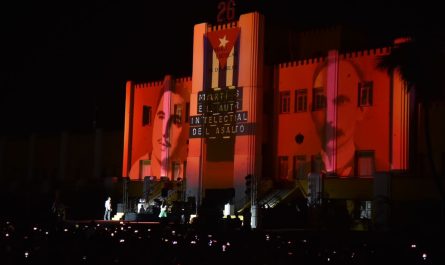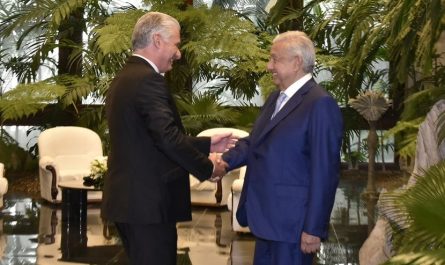HAVANA TIMES (Fernando Ravsberg) — On September 12, 1998, the FBI dismantled a network of Cuban spies who had been monitoring anti-Castro groups based in Miami. A number of these spies negotiated with the prosecution to have their sentences reduced, but five refused to do so. Their convictions, which included life sentences, were the most severe.
One of these five Cuban men was pilot Rene Gonzalez, recently released from a US prison, following nearly 13 years of incarceration and another nearly two years on parole. Now back living in Cuba, he agreed to talk to me about his life as an agent, his activities in the United States and his time in prison.
Why did you agree to go the United States and act as a spy there?
I am part of a generation of Cubans who grew up under the threat of terrorist actions against the country. I’ve never forgotten the hijacking of Cuban fishing vessels and the murder of their crews, which were often perpetrated by terrorist groups based in Miami. I was one of the millions of people who attended the massive gathering held in honor of those who were killed off the coast of Barbados, in the terrorist bombing of a Cuban airliner. So, when I was asked to do this, I didn’t hesitate. I felt it was my duty as a patriot.
Is it ethical to spy on another country?
I believe it is ethical to defend yourself when you are being attacked and that was what I set out to do. The most powerful nation in the world has attacked us for many years and we have the right to defend ourselves, provided we do no harm to the American people. At no point was it our intention to do anyone any harm, we merely exercised our right to defend ourselves.
When you lead that kind of double-life, you probably also meet good people along the way. Did you feel you were betraying those people at any point?
The human element can complicate things. In all of these groups, you find good people who actually believe in what they’re doing, or people who are manipulated or harbor prejudices. You learn to recognize them, to identify those who are good people and those who are not. You realize that many of these people would have stayed on board (with the Revolution) under different circumstances and you begin to treat them with the kindness that they deserve.
I don’t want to mention any names, so as not to cause anyone any trouble over there, but I met people who had been officials in Batista’s army, elderly people, and I’m still like a son to them, just as they are like parents to me.
What kind of information were you after? It’s my understanding some of you were operating in a military base.
One of us was at a military base. He was divulging public information, he never had access to anything classified and never looked for it. His job was to compile as much publicly available information about the Cayo Hueso base as he could, because the base is a place where you can pick up signs of a possible terrorist attack against Cuba.
What did the others do?
Gerardo was in charge of coordinating the network’s activities. I had infiltrated several organizations: Brothers to the Rescue (Hermanos al Rescate), Democracy (Democracia), United Liberation Command (Comando de Liberación Unido) and others. I went through quite a number of different groups, because anyone who needs a small plane for their operations also needs a pilot and I was available.
On the subject of Brothers to Rescue, Gerardo is accused of causing the deaths of its four pilots. Did you actually have anything to do with that?
We had nothing to do with that. I would say that the most audacious thing the prosecution did to politicize the trial was to present the charges of the Brothers to the Rescue incident. Gerardo can’t even be accused of murder; he can only be accused of conspiracy to commit murder, that is, working with others, the government of Cuba, in this case, to commit murder, which would lead to the illicit death of a person not living in Cuba. Neither of the two charges could be substantiated.
Why were the sentences so severe then?
It’s something that goes beyond these incidents; it’s the profound hatred towards Cuba they feel. I would go as far as saying it’s an act of revenge, for Cuba’s endurance. The US government has an unhealthy obsession with Cuba, an obsession that is responsible for the irrational policies of the last 50 years.
The sentences are irrational. They reveal that the prosecution is subservient to the terrorists who run Miami. The FBI chief himself boasted of having ties to those individuals.
If this is the case, why did the Cuban government provide the FBI with the information that led to your capture?
In 1998, Gabriel Garcia Marquez acted as a kind of liaison [for President Fidel Castro] to approach two FBI officials and offer them our cooperation in the fight against terrorism. These officials were given a folder containing evidence. But it wasn’t the information Cuba offered them which led to our capture. The evidence suggests that we were already under investigation at the time.
I also think that, ethically speaking, the fight against terrorism ought to unite our governments, over and above our ideological differences. I am for cooperation with other governments in this sense.
Were you given an opportunity to negotiate? Why did you refuse to?
Yes, of course. They also offered us good deals. One had his sentence reduced to 5 years, and he was being charged with the same crime as Antonio Guerrero, that is, they would have sentenced him to life in prison. It’s hard for some people to turn down an offer like.
You have to debase yourself as a person. When you’re offered a deal, the US prosecutors tell you that, if you don’t lie in court and if you refuse to do what you’re told, you’re going to rot in jail. You have to decide whether to lie or not.
And you know you’re being used to accuse your country of espionage and attack it, to gather false evidence against Cuba. A Cuban agent confirming everything the prosecutors claim about Fidel, about the Cuban government, about Raul, would have been used to put together such evidence.
So, we’re talking about two very important factors, your dignity as a human being and Cuba’s defense. We went on a mission knowing it could cost us our lives, not just a prison term, and we did it to protect the Cuban people.
How were you treated in prison?
While on trial, they put us in solitary confinement, in the prison’s punishment ward, and kept us there for 17 months. They were very rough with us, our families were mistreated, I wasn’t allowed to see my daughters, the medical attention we got was lousy. They tried to break us, but we had enough moral fortitude to resist.
Outside Miami, the political aspects of the case aren’t as determining, you’re just another inmate. It also depends on the prison’s security level. It’s crime that Gerardo should be kept in a maximum security prison, because these are very violent places, where very dangerous confrontations between gangs take place.
I was lucky, because I was put in a medium security prison, in the Eastern United States, where there aren’t as many gangs and violent acts are less frequent.
Do you believe that exchanging your comrades for Alan Gross is a fair proposal?
I don’t know whether “exchanging” is the right word. No one wants to us it, politicians are complicated people. But I think it is, yes. I think all six families would benefit from it. I don’t think any side should have to make a unilateral gesture, it seems absurd, an arrogant suggestion.
I have nothing against Mr. Gross. I believe that politically-motivated crimes should be dealt with a certain degree of benevolence, provided it’s not an atrocious crime, because these are prompted by convictions that deserve respect, whatever these are. I would be pleased to see this matter resolved and above all to see the two governments settle all of the problems they have.
Why do you think the US government doesn’t exchange the Five, as they did with Russian spies?
Wayne Smith, a former top US diplomat in Cuba, says that Cuba has the same effect on the US government that the full moon has on a werewolf.
Cuba breaks with an entire tradition of domination in the continent, a history which had known no exception until the Cuban revolution, hence their contempt. They hate Cuba for the Bay of Pigs, for the Missile Crisis, for existing and serving as an example for others.
Nachrichten & Hintergründe aus Kuba



